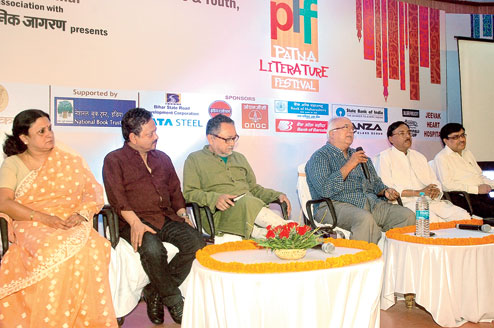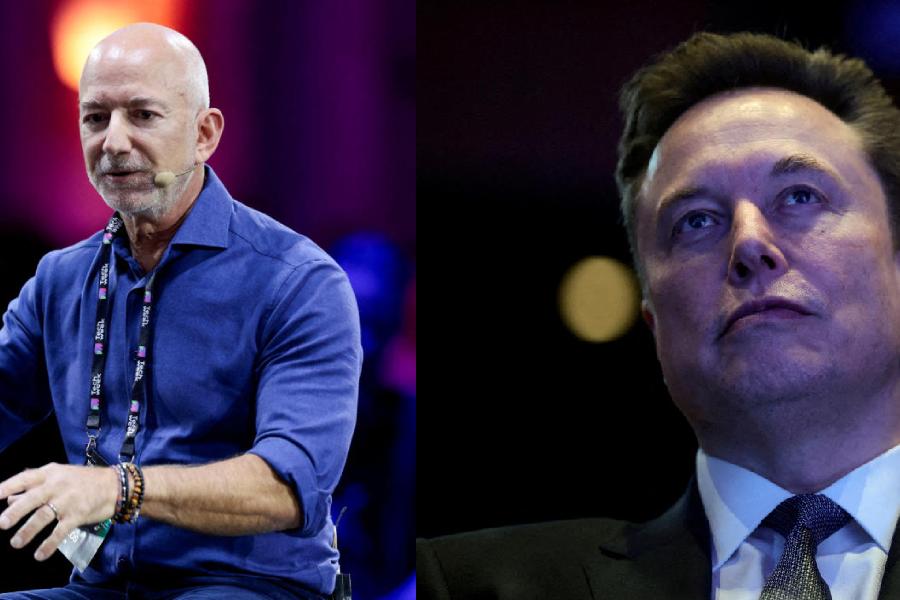 |
| Historian Gyan Prakash (left), cultural adviser to the chief minister Pawan Kumar Varma (extreme right) and the other panellists at the ‘Searching for Identity: Language, Literature and Culture in Emerging India’ session at the Patna Literature Festival on Saturday. Picture by Nagendra Kumar Singh |
Patna, March 23: A day after Chinua Achebe — the godfather of African postcolonial literature and champion of Biafran nationalism — died, the Patna Literature Festival began with intellectuals discoursing on the relationship of literature and culture to the Indian identity.
“We don’t have a problem with English but this festival is about Indian languages,” said novelist, poet and cultural adviser to the chief minister, Pawan Kumar Varma, today in the inaugural session, “Searching for Identity: Language, Literature and Culture in Emerging India”. He added that the perpetuation of the colonial project of cultural domination in contemporary times was disturbing.
But English professor from Delhi University Alok Rai set the cat among the pigeons when he said: “The search for identity has its roots in anxiety. Whether ‘I’ am or ‘I’ am not.”
Later in the day, in another session, “History, Memory and Narrative”, Rai discussed how annals are written with Gyan Prakash, Dayton-Stockton professor of history at Princeton University, and author of Mumbai Fables (2010).
“No memory is innocent,” said Prakash, before narrating how three brothers in Patna refused to get rid of a Dev Anand hairstyle even when the actor got a different cut.
After the session, he also had a few things to say about resurgent Bihar. “A decade ago, people were apologetic to acknowledge that they were from the state. Lalu Prasad (former chief minister) was a comic figure. Now, all that seems to have changed.”
Asked if popular sub-nationalism that seems to have caught the imagination not only of Biharis but residents of almost all states should be encouraged, Prakash said: “It’s good as long as it does not become a jingoistic tool for politicians.”
The resurgence of the state was well on display at the festival where some of the youths in the audience were Delhites working in Patna.
Delhi University economics passout Apoorva Bamezai, 26, who now works for non-profit organisation Idinsight, had come with her friends Nandini, M.R. Sharan and Esha Chhabra to see some of the sessions.
“This is first time that such an event is happening here,” said Apoorva. “So we thought we should check it out.”
Nitish Kumar, the chief minister who has self-fashioned himself as the champion of Bihari adhikar (right), might have been happy to meet the her and her friend. They are examples of how it is not only Biharis who migrate to the other states but also play hosts.
At the formal inauguration, Nitish proved himself to be a patron of the arts by promising a budget for the literature festival out of the largesse of the Bihar Divas celebrations from next year. After all, the Divas is the best-publicised carnival of the state’s sub-nationalism.










